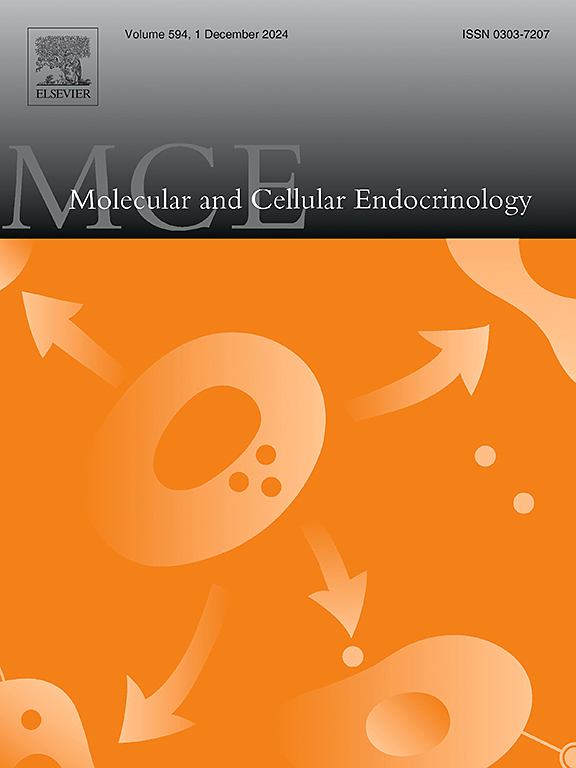USP7 deficiency promotes diabetic wound healing by repressing GATA3-mediated pro-inflammatory macrophage polarization
IF 3.8
3区 医学
Q2 CELL BIOLOGY
引用次数: 0
Abstract
Background
The polarization of inflammatory macrophages is an important factor contributing to delay wound healing in diabetic foot ulcers (DFU). In this study, the role of ubiquitin-specific protease 7 (USP7) in regulating macrophage polarization during DFU progression was investigated.
Methods
Gene and protein expression levels were assessed using qRT-PCR and western blot. In vitro and in vivo diabetes mellitus (DM) models were established by HG treatment and STZ injection, respectively. HUVEC viability, migration, and angiogenesis were detected by CCK8 assay, wound healing assay, and tube formation assay, respectively. Flow cytometry was employed to analyze the levels of macrophage polarization markers. Co-IP assay was performed to analyze the interaction between USP7 and GATA3.
Results
Our results demonstrated that USP7 was overexpressed in ulcer margin tissues of DFU patients, wound tissues of DFU mice, and HG-treated macrophages. Functionally, USP7 deficiency inhibited macrophage M1 polarization and promoted wound healing in DFU mice. In vitro, USP7 knockdown promoted HUVEC proliferation, migration, and angiogenesis by inducing M2 macrophage polarization and inhibiting M1 macrophage polarization under HG condition. Mechanistically, USP7 could stabilize GATA3 protein in macrophages by deubiquitinating GATA3. Moreover, the effects of USP7 knockdown on HUVEC function and macrophage polarization under HG condition were partially reversed by GATA3 overexpression.
Conclusion
USP7 silencing enhanced wound healing in DFU by inhibiting M1 macrophage polarization and promoting M2 macrophage polarization through mediating GATA3 deubiquitylation.
USP7缺乏通过抑制gata3介导的促炎巨噬细胞极化促进糖尿病伤口愈合。
背景:炎症性巨噬细胞的极化是糖尿病足溃疡(DFU)中延迟伤口愈合的重要因素。本研究探讨了泛素特异性蛋白酶7 (USP7)在DFU进展过程中调控巨噬细胞极化的作用。方法:采用qRT-PCR和western blot检测各组小鼠基因及蛋白表达水平。采用HG治疗和STZ注射液分别建立离体和体内糖尿病模型。分别用CCK8法、创面愈合法和血管形成法检测HUVEC的活力、迁移和血管生成。流式细胞术检测巨噬细胞极化标记物水平。采用Co-IP法分析USP7与GATA3的相互作用。结果:我们的研究结果表明,USP7在DFU患者的溃疡边缘组织、DFU小鼠的创面组织和hg处理的巨噬细胞中过表达。功能上,USP7缺乏抑制巨噬细胞M1极化,促进DFU小鼠伤口愈合。体外,在HG条件下,USP7敲低通过诱导M2巨噬细胞极化和抑制M1巨噬细胞极化,促进HUVEC的增殖、迁移和血管生成。机制上,USP7可以通过去泛素化GATA3来稳定巨噬细胞中的GATA3蛋白。此外,在HG条件下,USP7敲低对HUVEC功能和巨噬细胞极化的影响被GATA3过表达部分逆转。结论:USP7沉默通过介导GATA3去泛素化,抑制M1巨噬细胞极化,促进M2巨噬细胞极化,从而促进DFU创面愈合。
本文章由计算机程序翻译,如有差异,请以英文原文为准。
求助全文
约1分钟内获得全文
求助全文
来源期刊

Molecular and Cellular Endocrinology
医学-内分泌学与代谢
CiteScore
9.00
自引率
2.40%
发文量
174
审稿时长
42 days
期刊介绍:
Molecular and Cellular Endocrinology was established in 1974 to meet the demand for integrated publication on all aspects related to the genetic and biochemical effects, synthesis and secretions of extracellular signals (hormones, neurotransmitters, etc.) and to the understanding of cellular regulatory mechanisms involved in hormonal control.
 求助内容:
求助内容: 应助结果提醒方式:
应助结果提醒方式:


